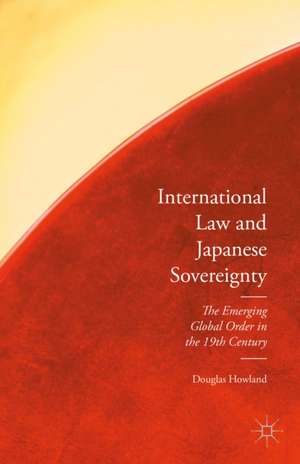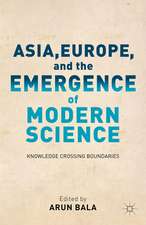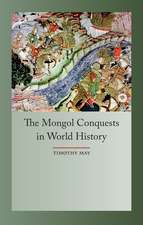International Law and Japanese Sovereignty: The Emerging Global Order in the 19th Century
Autor Douglas Howlanden Limba Engleză Hardback – 18 feb 2016
Preț: 799.66 lei
Preț vechi: 878.75 lei
-9% Nou
Puncte Express: 1199
Preț estimativ în valută:
153.03€ • 158.86$ • 127.60£
153.03€ • 158.86$ • 127.60£
Carte tipărită la comandă
Livrare economică 18-24 martie
Preluare comenzi: 021 569.72.76
Specificații
ISBN-13: 9781137571083
ISBN-10: 113757108X
Pagini: 232
Ilustrații: XI, 232 p.
Dimensiuni: 140 x 216 x 16 mm
Greutate: 0.44 kg
Ediția:1st ed. 2016
Editura: Palgrave Macmillan US
Colecția Palgrave Macmillan
Locul publicării:New York, United States
ISBN-10: 113757108X
Pagini: 232
Ilustrații: XI, 232 p.
Dimensiuni: 140 x 216 x 16 mm
Greutate: 0.44 kg
Ediția:1st ed. 2016
Editura: Palgrave Macmillan US
Colecția Palgrave Macmillan
Locul publicării:New York, United States
Descriere
How does a nation become a great power? A global order was emerging in the nineteenth century, one in which all nations were included. This book explores the multiple legal grounds of Meiji Japan's assertion of sovereign statehood within that order: natural law, treaty law, international administrative law, and the laws of war. Contrary to arguments that Japan was victimized by 'unequal' treaties, or that Japan was required to meet a 'standard of civilization' before it could participate in international society, Howland argues that the Westernizing Japanese state was a player from the start. In the midst of contradictions between law and imperialism, Japan expressed state will and legal acumen as an equal of the Western powers in international incidents in Japanese waters, disputes with foreign powers on Japanese territory, and the prosecution of interstate war. As a member of international administrative unions, Japan worked with fellow members to manage technical systems such as the telegraph and the post. As a member of organizations such as the International Law Association and as a leader at the Hague Peace Conferences, Japan helped to expand international law. By 1907, Japan was the first non-western state to join the ranks of the great powers.
Cuprins
1. International Legal Grounds for State Sovereignty
2. The Family of Nations and Conflict of Laws
3. Territorial Sovereignty and Extraterritorial Privilege
4. The Alternative Order of International Administration
5. Mastering the International Laws of War
6. Japan Among the Great Powers
2. The Family of Nations and Conflict of Laws
3. Territorial Sovereignty and Extraterritorial Privilege
4. The Alternative Order of International Administration
5. Mastering the International Laws of War
6. Japan Among the Great Powers
Recenzii
“This book undoubtedly makes a landmark contribution to the field of modern Japanese history. … Howland has succeeded in capturing the dynamics of the interactions between shifts in the world order and Japan’s diplomatic strategy, vividly depicting their impact on today’s international relations in East Asia and on international society. This book can inform and inspire not only Japanologists, but also scholars in international law, international politics, Asian studies, and history.” (Tomoko Okagaki, Social Science Japan Journal, Vol. 20 (2), August, 2017)
Notă biografică
Douglas Howland is the Buck Professor of Chinese History at the University of Wisconsin-Milwaukee, USA. He is the author of four books and co-editor (with Luise White) of The State of Sovereignty: Territories, Laws, Populations (2009).
Textul de pe ultima copertă
How does a nation become a great power? A global order was emerging in the nineteenth century, one in which all nations were included. This book explores the multiple legal grounds of Meiji Japan's assertion of sovereign statehood within that order: natural law, treaty law, international administrative law, and the laws of war. Contrary to arguments that Japan was victimized by 'unequal' treaties, or that Japan was required to meet a 'standard of civilization' before it could participate in international society, Howland argues that the Westernizing Japanese state was a player from the start. In the midst of contradictions between law and imperialism, Japan expressed state will and legal acumen as an equal of the Western powers – international incidents in Japanese waters, disputes with foreign powers on Japanese territory, and the prosecution of interstate war. As a member of international administrative unions, Japan worked with fellow members to manage technical systems such as the telegraph and the post. As a member of organizations such as the International Law Association and as a leader at the Hague Peace Conferences, Japan helped to expand international law. By 1907, Japan was the first non-western state to join the ranks of the great powers.
















